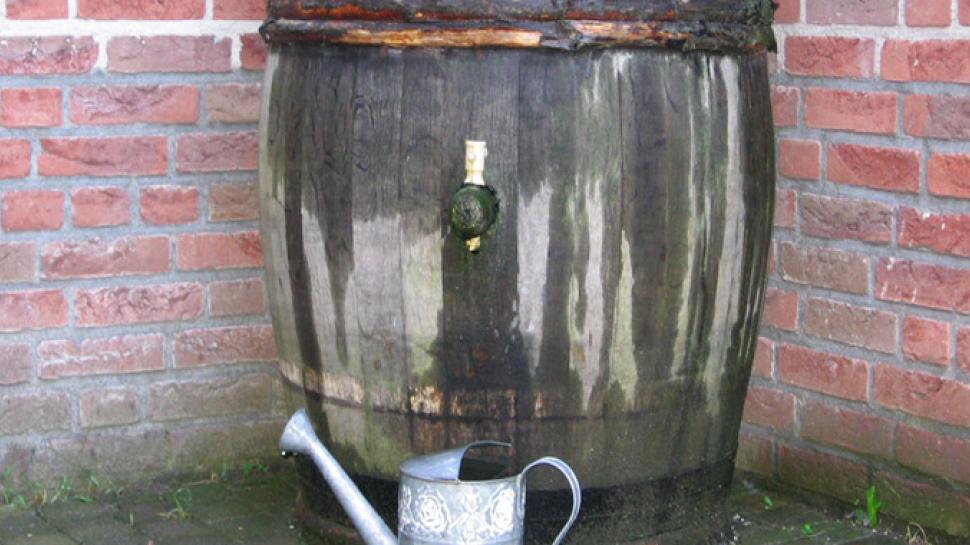Easy On The Earth
Easy On The Earth

Happy New Green Year to Everyone! Hopefully we have all begun to make some modifications in our habits; every little effort can make a difference.
 We hope you were able to check out the websites we listed in last month’s column and participate in the questionnaires to determine your global footprint. Continuing in December’s theme, this month we want to focus, a little more specifically, on our water footprint (something we can all begin to reduce IMMEDIATELY). I normally don’t make New Year’s resolutions, but this year I am resolving to find and use a rain barrel. If you have read ‘Under the Ivy’ you already know that I have substantial amounts of plants and shrubs to water, which I have always endeavoured to do responsibly and with the least amount of water wastage. Using a rain barrel is not only practical but carries with it a certain degree of nostalgic charm. There are new barrels available with some innocative features or you can even make your own.
We hope you were able to check out the websites we listed in last month’s column and participate in the questionnaires to determine your global footprint. Continuing in December’s theme, this month we want to focus, a little more specifically, on our water footprint (something we can all begin to reduce IMMEDIATELY). I normally don’t make New Year’s resolutions, but this year I am resolving to find and use a rain barrel. If you have read ‘Under the Ivy’ you already know that I have substantial amounts of plants and shrubs to water, which I have always endeavoured to do responsibly and with the least amount of water wastage. Using a rain barrel is not only practical but carries with it a certain degree of nostalgic charm. There are new barrels available with some innocative features or you can even make your own.
Recently there was a fascinating series of radio shows on CBC Radio entitled ‘Watershed’ and hosted by Anna Maria Tremonte. Click below to read about and hear excerpts from this program.
As well, please read the following article, which offers some practical tips.
ERIN KOBAYASHI – SPECIAL TO THE STAR
Water, particularly fresh water, is an incredibly precious resource. It's been dubbed the "oil of the 21st century." Yet our use of water has largely been overshadowed by measurements of our carbon footprint.
 Similarly, a water footprint measures how much water is used directly, and indirectly. For example, the production of one kilogram of beef requires 16,000 litres of water.
Similarly, a water footprint measures how much water is used directly, and indirectly. For example, the production of one kilogram of beef requires 16,000 litres of water.
According to the World Wildlife Fund's Living Planet Report, Canada has the world's 12th largest water footprint. The report says Canadians each use 5,400 litres of water a day, the equivalent of running a tap for more than 10 hours a day or flushing a toilet nearly 1,000 times daily.
Interested in ways to help shrink your water footprint? You can start by doing a few simple things:
• Do not let the tap run when you brush your teeth, shave or wash your hands.
• Install a low-flow toilet and showerhead. • Run your washing machine, and dishwasher, only when you've reached the capacity for a full load.
• Shorten your shower by a few minutes. *
• In summer, use timed sprinklers that only soak grass – not concrete.
• Boil, and cook with, only as much water as you actually need – why fill a whole kettle when you're having only one cup of tea
• Add more veggies to your plate. Meat-heavy diets use more water.
Click here to determine your water footprint: www.waterfootprint.org
Please feel free to respond to Easy on the Earth and add any tips, websites or personal experiences of your own!
*Regarding the suggestion “shortening your shower by a few minutes”; in the case of teenage boys, make that by “many, many minutes”. See you next month!